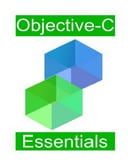Description
To get the most from this book, you should have some basic computer literacy — you should be able to run a program, edit a text file, and so on. You should also have access to a computer running a GNU system such as GNU/Linux.
The tutorial introduces basic ideas in a logical order and progresses steadily. You do not need to follow the order of the chapters rigorously, but if you are a beginner to C, it is recommended that you do. Later, you can return to this book and copy C code from it; the many examples range from tiny programs that illustrate the use of one simple feature, to complete applications that fill several pages. Along the way, there are also brief discussions of the philosophy behind C.
Contents
- Using a compiler
- The form of a C program
- Functions
- Variables and declarations
- Scope
- Expressions and operators
- Parameters
- Pointers
- Decisions
- Loops
- Preprocessor directives
- Libraries
- Arrays
- Strings
- Input and output
- Putting a program together
- Advanced operators
- More data types
- Data structures
- Recursion
- Style
- Debugging
- Example programs
- A note from the original author
- Reserved words in C
- Precedence of operators
- Special characters
- Character conversion table
- A word about goto
Author(s): Mark Burgess and Ron Hale-Evans
Format(s): PDF, PostScript, DVI, Texinfo
File size: 1.37 MB
Number of pages: 290
Link :download
Format(s): PDF, PostScript, DVI, Texinfo
File size: 1.37 MB
Number of pages: 290
Link :download



